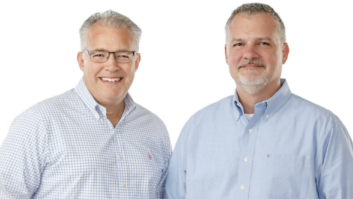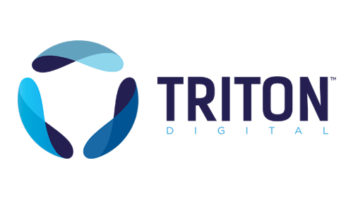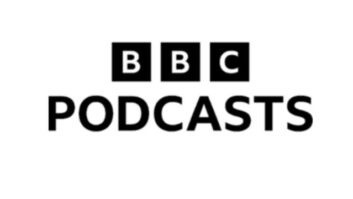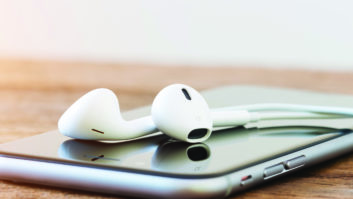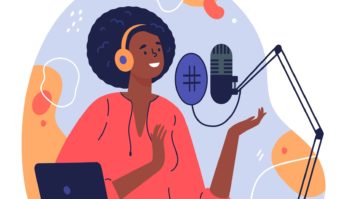Commercial and Public Radio Stations Hope for a Bigger Payoff Down the Road
Now that the initial glow is wearing off podcasting, more broadcasters are asking about the business case for this new tool. Is it possible to make podcasting pay? Or is it just a high-tech black hole that drains cash from a bottom line?
Not surprisingly, various people and companies have different answers. Broadcasters, it seems, are feeling their way around the business case for podcasting, trying to divine the approach that will make this phenomenon profitable.
Bullish
Clear Channel knows that Web fans want more than what’s available on air; otherwise they’d be sticking to live radio. Moreover, “The number of people listening to radio online has grown fivefold over the past five years,” stated Clear Channel Radio John Hogan a year ago in a corporate news release, so “it’s time to step up our programming.”
This explains why the company has been posting special content for the more than 400 Clear Channel stations that offer audio streaming, such as in-studio performances and artist interviews.
For example, on the Web site for New York’s WHTZ(FM), Clear Channel offers interviews with Sean Paul and Ricky Martin. In line with the company’s online strategy, these interviews are offered as downloads, streaming audio and podcasts.
Despite this multifaceted approach to online distribution, Clear Channel does see podcasting as “a very unique proposition,” said Gerrit Meier, senior vice president and general manager of Clear Channel Online Music and Radio.
“We can take the business model that we’ve already developed for on-air and online, and simply adapt it to fit a portable time-shifted format. This means that we can insert ads into the content, and sell those ads to sponsors.” At present, Clear Channel stations are selling “pod spots” by themselves or packaged with other media.
Clear Channel isn’t the only radio media group selling pod spots; so is Virgin Radio in the UK.
“We have monetized podcasts from our very first podcast, with ‘podvertising’ from large brand names like MasterCard, the UK government and Bose,” said James Cridland, Virgin Radio’s head of New Media strategic development. As a result, he said, “all our podcasts are profitable.”
Pod spots may be just the beginning; the popularity of the Clear Channel podcasts posted on Apple’s iPod-centric www.itunes.com – over 4 million downloads in a recent four-month period – has inspired the radio group to start thinking big. We’re not just talking sponsorships; Meier believes that podcast consumers will actually pay for the content they want.
“Absolutely,” he told Radio World. “What remains to be worked out are the deals with the music industry. They still have to decide what they want to charge for this content.”
In fact, paid subscribers to the Rush Limbaugh Web site get access to Rush podcasts as part of their membership. As a result, there’s no longer any question as to whether consumers will pay to get the podcasts they want, Meier said: “Some consumers already are.” The trick will be to get them to do so for a wide range of podcasts.
Selling the package
Like many news/talk stations, WTOP(AM) in Washington is offering a mix of news headlines and short interviews on its podcasts. Although only available for a few months, “these podcasts have gained enough popularity to get the attention of the sales department,” said Steve Dolge; director of Internet operations for Bonneville International Corp., which owns WTOP and three other DC radio stations.
“If we can begin to make money off podcasting, it won’t be such a novelty anymore.”
WTOP’s plan is to aggregate all of its podcasts into a single advertising package, then sell the sponsorship to a single exclusive advertiser.
“The sponsor’s name and message will be at the opening of every podcast we do,” said WTOP Business Development Manager John Meyer. The cost would be $7,500 a month for the entire package. To put this price in perspective, “a rotating banner ad on our Web site goes for $1,500 a week,”Meyer said. To sweeten the deal, WTOP intends to include access to its audio archives on its podcast page.
“The sales department is really excited about this package,” Meyer said. Time will tell if sponsors feel the same way.
Extending reach
As a non-profit NPR affiliate, KCRW(FM) in Los Angeles has a different take on the podcasting business case. Managers see it as a way to increase access to potential listeners, which could eventually boost fundraising revenues.
“It takes an average of three years’ listening to public radio before someone is persuaded to donate money to the station,” said KCRW Assistant General Manager Jennifer Ferro. With KCRW delivering 100,000 podcast downloads daily through www.kcrw.com and iTunes, Ferro is hopeful that many podcast listeners will stick around for the long term and one day start supporting KCRW.
“What really made the difference to our numbers was when we started to be posted on www.itunes.com ,” she said. “It’s not just a matter of reach; thanks to iTunes, we’re no longer being marginalized as ‘public radio.’ People are paying attention to us because of our content, not because of who our network is.”







